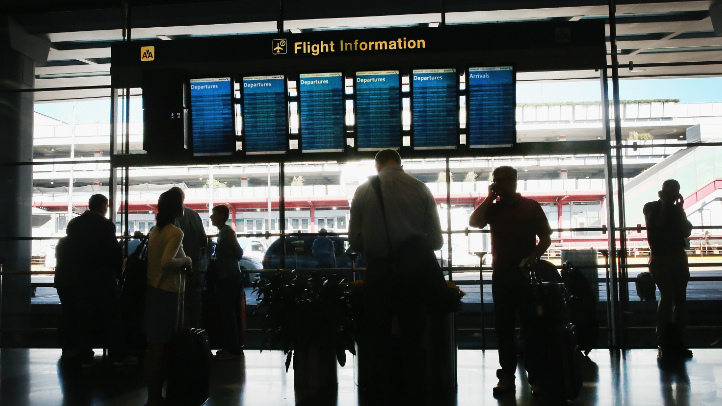
A suburban Chicago state's attorney filed a lawsuit Friday seeking to have the SAFE-T Act, criminal justice reform legislation passed by the Illinois General Assembly in 2021 that is set to take effect on Jan. 1, declared "unconstitutional."
Kankakee County State's Attorney Jim Rowe filed a lawsuit in his county's circuit court stating the act violates the constitution in multiple ways, including the single-subject law, separation of powers, the three-readings requirement and others. The suit names Gov. J.B. Pritzker and Illinois Attorney General Kwame Raoul as defendants.
“This lawsuit should not be necessary," Rowe said in a statement. “I surely believe that freedom should not hinge upon one’s ability to pay a bond, and that the criminal justice system is in dire need of reform, including bail and beyond. However, regardless of whether you agree with or reject the many reforms of the Safe-T Act, or even how you may interpret them, one thing is for certain: you cannot amend the Illinois Constitution without a referendum or Constitutional Convention (Illinois Constitution, Article XIV).”
Pritzker's office called the lawsuit a "weak attempt to protect the status quo that lets murders and abusers pay their way out of jail."
Feeling out of the loop? We'll catch you up on the Chicago news you need to know. Sign up for the weekly Chicago Catch-Up newsletter here.
"The SAFE-T Act not only prevents that from happening, but also provides law enforcement officers the tools they need to fight crime, like body cameras, additional training and access to mental healthcare," their statement read. "Victims’ rights organizations support the law and the state will defend creating a more equitable criminal justice system in court."
The move, which Rowe said was on behalf of Kankakee County Sheriff Mike Downey, is the latest criticism of the bill from Republicans, who have decried the legislation as dangerous. Misinformation about the upcoming changes, particularly the Pretrial Fairness Act that is included in the bill, continues to spread rapidly on social media.
While other states, including New Jersey and New York, have passed legislation largely curtailing the use of cash bail for pretrial detentions, the state of Illinois will go one step further in January and eliminate cash bail entirely.
Local
The law has been front and center in election campaigns. Some on social media have dubbed it a so-called "purge law," likening it to the horror film "The Purge," in which criminal activity of all kinds is allowed for 12 hours. Others have claimed it will lead to "non-detainable offenses."
Rowe addresses that portion of the SAFE-T Act in his lawsuit as well, claiming that people who commit certain crimes "cannot be detained." It's a claim legislators and Pritzker have said is false.
According to Olayemi Olurin, a public defender for the Legal Aid Society in New York who recently went viral on Twitter for her explanation of Illinois' Pretrial Fairness Act, the idea of the new law being a "purge law" is not accurate.
"The purge is a time a time where they say this is a free for all. All crime is legal for the next 24 hours. That's the concept of the purge, right?" she told NBC 5. "That is not the case here in any way, shape or form what this law actually does. This is just redressing bail. That's all this is is addressing bail. You can't... you are not being given and invited for any free for all for crime."
Under the law, the state will allow judges to determine whether individuals accused of a wide range of crimes pose a risk to another individual or to the community at large, and then decide whether to hold them in pretrial detention or to release them on their own recognizance.
While some publications and social media posts, cited by Snopes, have argued that some crimes will become “non-detainable offenses,” including second-degree murder and other violent acts, the state says that judges will still be allowed to order pretrial detention in specific circumstances.
“Detention only shall be imposed when it is determined that the defendant poses a specific, real and present threat to a person, or has a high likelihood of willful flight,” according to the text of the bill.
The term "non-detainable" does not appear in the text of the bill.
A hearing will be required to determine whether a defendant poses that risk, and if the court finds that they do, then a judge will be required to submit their reasoning in writing under the parameters of the legislation.
The nature and circumstances of the charges, the weight of evidence against the defendant, the defendant’s history and characteristics and the risks that would be posed by release will all be evaluated, according to CivicFed.
According to the legislation, the state will bear the burden of proof in cases, required to present “clear and convincing evidence that the defendant committed an offense that qualifies for pretrial condition,” as well as to present evidence that they would pose a “real and present threat” to the safety of others if released.
In an Instagram post, Pritzker pushed back against the demonization of “non-detainable” offenses, and said that victims’ rights activists have largely supported the measure.
“HB 3653 does not mandate release, and is supported by victims’ rights advocates,” he said. ‘It ensures that the courts retain the ability to hold defendants who are safety or flight risks.”
For additional information on the Pretrial Fairness Act click here.
But the Pretrial Fairness Act is just one part of HB3653.
The bill, authored by the Illinois Legislative Black Caucus, also brings "significant changes" to things like police training policies, police accountability, transparency in law enforcement and the rights of detainees and prisoners, according to Sen. Elgie R. Sims, Jr., who sponsored the bill.
Included in the legislation is a requirement that all police officers wear body cameras by 2025, a ban on all police chokeholds, new guidelines for "decertification" of police officers, and an end to suspended licenses for failure to pay, among several other changes. It also bans police departments from purchasing military equipment like .50 caliber rifles and tanks, increases protection for whistleblowers, and adds to rights for detainees to make phone calls and access their personal contacts before police questioning.



